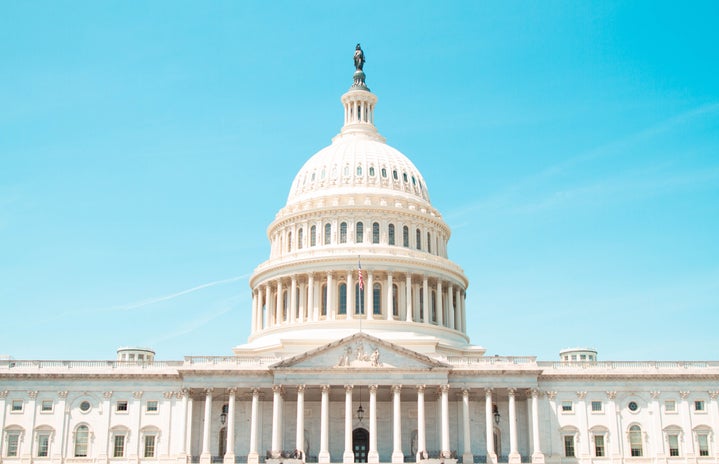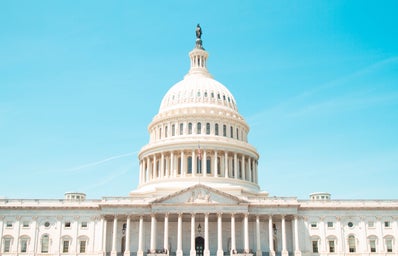Politics and religion. Two words that are equally controversial on their own but especially in combination. For centuries, humanity has struggled to define the limitations of and connection between the two. Should church and state overlap in any way? Should religion have any place in politics; is that even feasible?
For much of our history, church and state were intertwined. Royal houses and ruling bodies were extensions of and/or embodiments of the church. Many families and houses even believed they were put on Earth by a god to rule, the concept of “the divine right to rule.” In some countries and societies, it was believed that the leader was a god themselves.
Over time, Christianity, and more specifically Catholicism, emerged as the dominant political structure across Europe. This, in turn, eventually spread to the colonies of these nations. It was only until King Henry VIII of England broke from the Catholic structure and established the Anglican Church that this cohesive European model was disrupted.
During America’s beginnings, Puritanism was the primary way of life. While designed to unbind colonists from the rules often forced on them by the Anglican Church, Puritanism too was rooted in religious authority. People were exiled, fined, and sometimes even killed for defying “divine laws” and leaders.
This failed attempt to start anew is what led to the first whisperings of “the separation of church and state.” Roger Williams, a Puritan minister, feared the Puritan government model was tainting the purity of the religion by weaponizing it as a political tool. The interpretation of secular government in modern times is a bit different, however. It’s more commonly viewed as the protection of religious freedom by preventing the government from hindering the exercise of any faith or establishing a national one.
Since the adoption of the Constitution in 1787, the United States has practiced secularism, the idea that religion should be separate from civil and state affairs. Ninety-six countries across the world also practice secularism, meaning roughly 50% of the world follows this model. This evolution is generally viewed positively, protecting rights to religious expression as well as preventing legal discrimination of and persecution of religious minorities.
However, to what degree are church and state truly separate in any of these countries? In 9% of constitutions that guarantee freedom of religion, a state religion that governs public and/or private life is also established. Furthermore, 18% of these constitutions also give special recognition to a specific religion. Most shockingly, nearly 50% of constitutions that declare commitment to secularism also include language that privileges a specific religion or religion in general.
Even in countries whose constitutions avoid such contradictions, I argue religion (which is different from the Church) is not separate from the State. Simply look at how politicians and political parties campaign leading up to elections. Many hopeful electees run under the claim that they ascribe to a specific faith (often a Christian domination in Western countries) and will uphold and reflect said religious values in their actions and policy if elected. A current example of this phenomenon is President-elect Donald Trump, a self-proclaimed Christian who, like many Republican and Democratic politicians alike, engages in religious rhetoric. This political strategy can include directly referencing God and Judeo-Christian values in speeches, statements, and such.
Consequently, in the 2020 U.S. presidential election, 81% of white evangelical Protestants and Catholics voted for Trump. This trend carried over into the 2024 election, with Christians comprising 56% of Trump’s votes. Even whole political parties are associated with specific religions and religious values. For example, 56% of Republicans identify as Protestant, 81% identifying as religious in general (compared to 61% of Democrats).
Religious beliefs also often mold moral and ethical principles behind political policies. Hot-topic issues such as abortion, same-sex marriage, social welfare, euthanasia, and others tend to be influenced by religious texts and doctrines, mobilizing certain sects of voters who may identify as religious. Even social movements, such as the Civil Rights Movement, can be highly influenced by religious sentiments and principles.
It’s clear to see that religious campaigning holds power with voters; but why? There are several posed explanations: Americans choose their political identification to best fit their religious beliefs, Americans tailor their religious beliefs to their politics, or casual factors like background, heritage, and others cause Americans to be both religious and Republican or less religious and Democratic.
Whatever the reason may be, the interconnectedness of religion and politics is undeniable despite a strong majority of Americans supporting the separation of church and state. Religion remains a source of identity, both on an individual and group level, shaping how people view themselves, others, and their subsequent role in society. Furthermore, the moral foundations that religion provides cannot be shaken and undoubtedly influence perspectives on law, policy, and governance, even in secular societies.
So yes, while church and state are separate in the United States and many other nations across the globe, religion and politics are not and will likely remain that way until the foreseeable future. It is only once we confront and accept this reality that we can move forward with renewed expectations about political behavior and discourse within and outside of secular societies.


